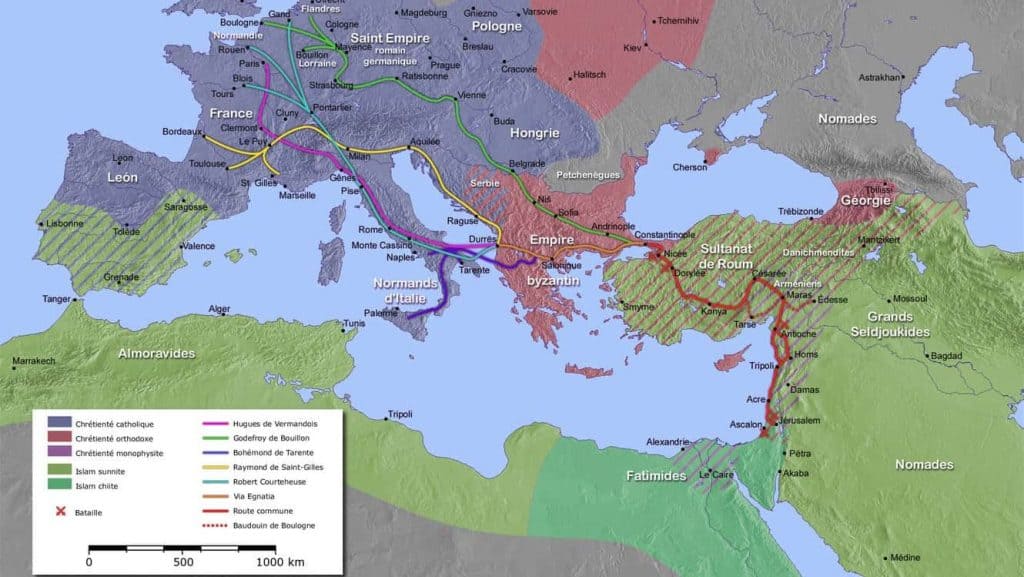The Second Crusade (1145–1149), launched in the 12th century, is a pivotal chapter in the history of medieval Europe and the Holy Land. Building on the enthusiasm and ideals of the First Crusade, this military campaign marked a significant moment of religious zeal and power struggles in the medieval world. So join us as we delve into the story of this fantastic military campaign.
First Crusade

Background:
The origins of the Second Crusade can be traced back to the fall of the County of Edessa (modern-day Şanlıurfa, Turkey) to the Muslim forces led by Zengi in 1144. This event sent shockwaves through Europe, prompting Christian leaders, including Pope Eugene III and the European nobility, to call for a new crusade to reclaim lost territories and secure Christian access to holy sites in the Holy Land.
Leadership and Objectives:
Louis VII of France and Conrad III of Germany: These two monarchs were the primary leaders of the Second Crusade. Their combined forces were expected to achieve the objectives set by the Church.
Recovery of Edessa: The primary goal was to recapture Edessa, a significant Christian stronghold that had been a Crusader state established during the First Crusade.
Siege of Ascalon 1153
Challenges and Setbacks:
Disunity Among Christian Forces: The Second Crusade faced issues of coordination and unity among the European forces. The leadership of Louis VII and Conrad III was often at odds, and this disunity weakened their campaign.
Lack of Local Support: Unlike the First Crusade, this Crusade did not enjoy strong local support from Christian communities in the Holy Land. This made it challenging to sustain the campaign.
Military Defeats: This crusade faced several setbacks, including a disastrous defeat at the Battle of Hattin in 1187. The failure to recapture Edessa and the loss of key fortresses strained the Crusaders.
The Second Crusade – Legacy and Consequences:
Impact on the Holy Land: Firstly, it did not achieve its primary objective of reclaiming Edessa and had little lasting impact on the Holy Land. Instead, it weakened the position of the Crusaders in the region.
Influence on Future Crusades: The Second Crusade highlighted the complexities and challenges of launching and maintaining a major military expedition to the Holy Land. Subsequent campaigns would learn from these lessons.
Religious and Political Implications: These religious military campaigns had significant religious and political implications in Europe. Furthermore, it stirred debates about its efficacy and the Church’s role in secular affairs.
In conclusion, the Second Crusade was a complex and multifaceted historical event. While it did not achieve its primary objectives and faced numerous challenges, it remains an important chapter in the history of the Middle Ages and the medieval Christian world. Moreover, it serves as a reminder of the complexities of religious zeal, power politics, and military campaigns in the Middle Ages.

